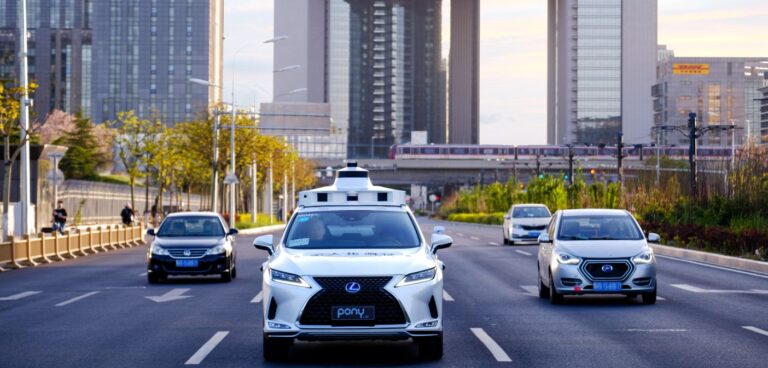Autonomous driving technology company Pony.ai has announced that the general public in Beijing, China will be able to experience robotaxis for the first time.
Pony.ai was one of two robotaxi operators awarded a permit by Beijing city authorities to offer driverless service in southeastern Beijing. Pony.ai has had a permit to test autonomous vehicles since October 2021, but not with the general public in the car.
To ensure safety during this pilot programme, a Pony.ai safety supervisor will sit in the front passenger seat. This new programme, which is free to the rider, is in addition to an existing test program in which Pony.ai can offer fee-charging robotaxi service to the general public that retains a safety driver behind the wheel monitoring the ride.
Pony.ai is now approved to conduct public facing driverless robotaxi rides in a 60km2 area in a Pilot Zone in Yizhuang, Beijing – triple the operating area from the previous driverless 20km2 testing area.
The company added approximately 300,000 residents in the area can now hail a driverless robotaxi using the PonyPilot+ app from 9am to 5pm. Pick-up and drop-off locations include public facilities such as subway stations, parks, and stadiums, alongside central business centres and residential areas.
“Pony.ai’s approval to operate driverless robotaxis in Beijing is a critical milestone in the transition from testing driverless autonomous vehicles within Pony.ai to offering driverless robotaxi rides to public passengers,” said James Peng, co-founder and CEO of Pony.ai.
To obtain this driverless permit, Pony.ai passed stringent safety test qualifications and criteria, including driverless navigation of unprotected left-turns, temporary construction zones, smog, heavy rain and snow conditions, drivered mileage, and the number of orders received.
“Since the launch of driverless testing, Pony.ai has demonstrated the technical quality of our system by successfully handling a wide range of extreme and complex scenarios. We did this by conducting multiple technical validations and iterations of driverless scenarios, and by improving system redundancy design, remote assistance platform development and fleet operation management,” added Tiancheng Lou, co-founder and CTO of Pony.ai.





